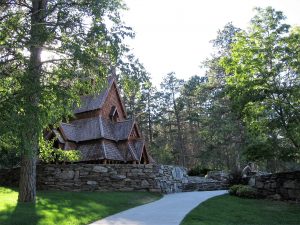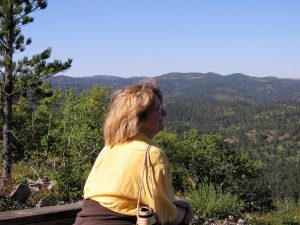John 21:1-14
The disciple, the one Jesus loved, said to Peter, “It is the Lord!” When Simon Peter heard that it was the Lord, he tied his outer clothing around him (for he had taken it off) and plunged into the sea. Since they were not far from land (about a hundred yards away), the other disciples came in the boat, dragging the net full of fish. When they got out on land, they saw a charcoal fire there, with fish lying on it, and bread. “Bring some of the fish you’ve just caught,” Jesus told them. So Simon Peter climbed up and hauled the net ashore, full of large fish—153 of them. Even though there were so many, the net was not torn. “Come and have breakfast,” Jesus told them. None of the disciples dared ask him, “Who are you?” because they knew it was the Lord. Jesus came, took the bread, and gave it to them. He did the same with the fish. This was now the third time Jesus appeared to the disciples after he was raised from the dead (21:7-14 CSB).
After God changed the whole world at Christ’s resurrection from the dead, his disciples had to adjust to living in this new reality. They had already seen Jesus a couple times, and Peter himself had seen Jesus already at least three times (on Resurrection Sunday morning or early afternoon after Mary had met the risen Lord, on that Sunday night, and one week later.) When Peter dived into the water, he was very excited to see the Lord Jesus for the fourth time! Think how you would be in his situation. He had failed the Lord, because of his pride and prayerlessness. But Jesus had been ready to receive him back along with the others and had already recommissioned them (20:19-23). That included Peter. Whatever sorrow Peter still had, and a tragic failure like his would take time to recover from, he still had a great desire to be with his Lord. We should learn from his example. Do not allow your sins to hinder you from returning to the Lord Jesus for forgiveness. He died that we might be forgiven. It is one of the great blessings of the new covenant sealed with his shed blood. For I will forgive their wickedness and will remember their sins no more (Hebrews 8:12 NIV).
As Peter swam quickly to the shore, his friends followed in the boat, bringing the net full of fish. The Spirit has not recorded what quick conversation happened between Jesus and his learner (disciple), but can you picture the scene. Peter comes up out of the water dripping wet to appear before the Risen Lord of Glory! It has to make you smile. We can come as we are to Him who sits at the right hand of the Father. We ought to have a bold faith.
When the disciples were on the shore together, they saw a charcoal fire there, with fish lying on it, and bread. The Lord Jesus had already started breakfast for his hungry followers. Jesus told them to bring other fish that they had caught that he had provided (both sides were true). Their meal was to be a joint endeavor. This is what the Christian life is like: the obedience that comes from faith for his name’s sake (Romans 1:5 NIV). We trust the Lord to provide, as we do what his word directs us to do.
After the fish were cleaned and cooked, Jesus invited them to the meal. “Come and have breakfast.” Fellowship with the Lord and one another is a great blessing. Like any other men at such a time, they would have enjoyed the food, talked and joked and laughed, as they shared life with each other. Christ wants us to share and enjoy our lives with him. There are times to celebrate in the life of faith, and we ought to join in the celebration! Having dinners with your whole church or with your small group is not a gimmick to enlarge your group. It is sharing our common humanity to the glory of God.
Notice also that Jesus gave them bread. This would have sent off echoes in their hearts about how he had done this on other occasions (cf. Luke 9:16-17; 24:30-32). This whole incident proclaims that the Risen Jesus they ate breakfast with that morning was the same Jesus they had always known. Christ is risen indeed! Life after the world changed ought to be sharing our lives with our Risen Lord!
Grace and peace
David

 Luke 15:1-10
Luke 15:1-10 Ruth 2:8-9
Ruth 2:8-9 Ruth 1:19-22
Ruth 1:19-22